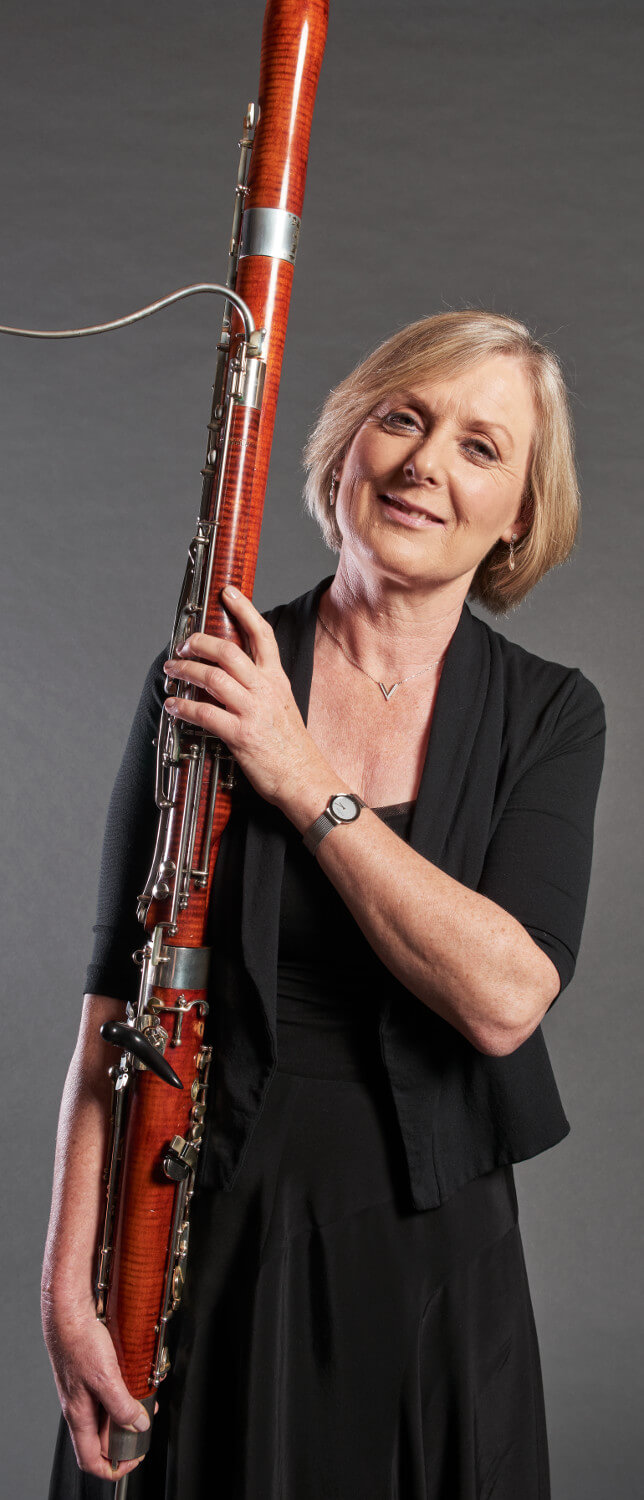Your hearing’s vital.
You don’t want to lose your hearing early, or at all.

13 November 2017
Victoria Grant, bassoonist, talks to Vi King Lim about hearing loss in orchestra musicians.
VKL:
So, can you tell me, as a bassoon player, what are your concerns in terms of hearing? I mean, how important is your hearing for you?
VG:
Very important, your hearing’s vital. You don’t want to lose your hearing early, or at all. When I first started playing the bassoon professionally, which is about thirty years ago, shields on chairs and hearing protection just weren’t really an issue, as far as I can remember. But over the years it’s become more and more important. And I can remember thinking, when I was a young girl just out in the field, that all bassoonists over the age of about fifty were actually quite deaf. That was something that was just a fact. Hopefully nowadays that’s not so common because orchestras have been very aware that they have to protect their musicians’ hearing.
It’s not just bassoonists of course, but as a bassoonist, you’re in front of the brass. You’re in the firing line quite literally and it’s painful if they play loudly. It really can hurt your ears and you know that there’s damage being done. So all orchestras take that seriously and will give their musicians regular hearing tests to monitor their hearing and to see if there has been any hearing loss. Up until a certain time, it was really just considered a bit of an occupational hazard. Not acceptable, but I suppose it’s like people going to nightclubs when they were young, they do get hearing loss.
The shields are fantastic, they really are an enormous help. You can use earplugs but it sounds and feels a bit like you’re playing in a phone box, unless it’s something extremely loud or where there’s fireworks and cannons going off as in the 1812 Overture or something like that. I don’t like earplugs because you have no real sense of how loud you’re playing. If you have to play something very loud and then you have to immediately play something very soft in a chord that has to be tuned perfectly, it’s tricky, and taking earplugs in and out quickly is too fiddly. The shields are most certainly the preference.
VKL:
Can I ask you a more general question? What does playing in an orchestra mean to you? I assume this is what you love doing?
VG:
Oh yes, it’s a unique experience. You can’t describe the feeling really unless you’ve sat in amongst an orchestra. Plenty of people go to a concert and enjoy listening and that’s fantastic. But once you’ve been in the orchestra, when you’re sitting out the front, it always sounds a little remote even if they’re playing very loudly. And if they are playing very loudly, you think “thank goodness, I’m not playing in the middle of the orchestra!”. It’s a wonderful experience to be surrounded by a host of musicians making music: with a good conductor, good soloists, good music – it’s a perfect recipe.

